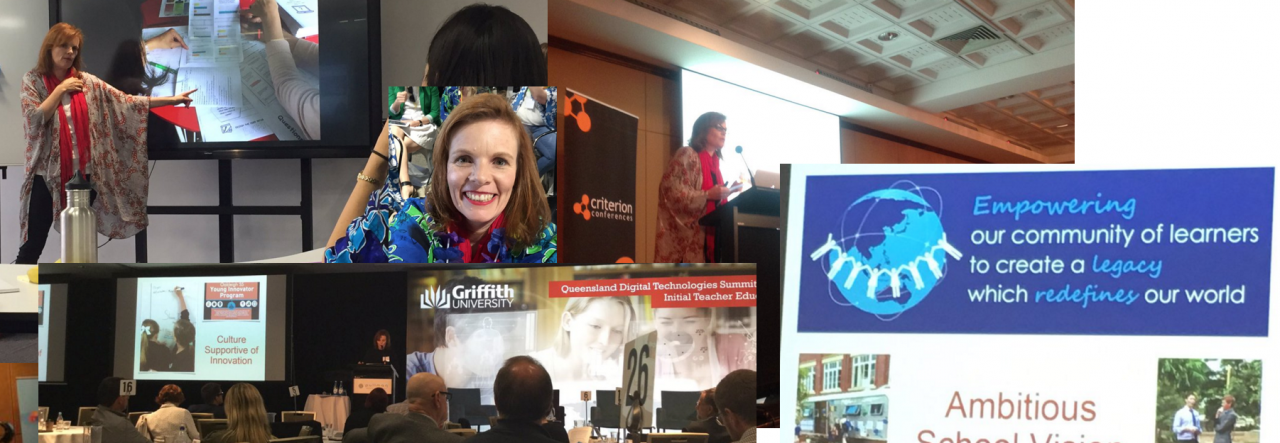The mindset of a maker or inventor is one that allows someone to take ideas and turn them into some kind of reality. It’s about being aware of what you already know and can do and being confident and brave enough to do something with that or to tinker and trial on your way to doing something with that. Questioning is a major part of this and the inquiry process is one that will support the finding of questions and a way to possibly answer them…….or might mean embarking on another line of questioning. It’s also about being comfortable with uncertainty and comfortable with failures. Failures can be part of a productive struggle and this is something that I might make a focus for me this year – learning to acknowledge of a productive struggle and being explicit about its importance for both teachers and students.
Sylvia Libow-Martinez, coauthor—with Gary S. Stager—of “Invent to Learn: Making, Tinkering, and Engineering in the Classroom” discuss how this mindset is important to develop not only in students but in the teachers working with them. It’s a scary thing to just dive in blind with no certainty about outcomes….
It’s something that I am hoping to explore, support and build upon in our Library Makerspace this coming year. http://osstechenablinglearning.edublogs.org/
Little Bits are described as the ‘ultimate invention tool box” on their web at http://littlebits.cc/ and they certainly hold much potential for supporting the young innovators of the future. I blogged about my holiday learning experiences on our school TechWeb here and since then, we have done even more work with them including this project initiated by my 6 year old son:
What is valuable as a result of this type of tinkering? Is it the final product which meets a need or addresses a real world problem? Is it the struggle that is necessary to achieve some degree of success? Is it the learning within STEM areas that is occurring? Is it experiencing a line of inquiry with distinct steps?
I would suggest it is all of these……and that this type of equipment amplifies quality learning and allows paths for students that take them so much further than minimum curriculum standards.
